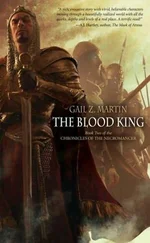“It is too late, one; and two, I’m not going with you anywhere.”
My father kicked the tire and let out a curse in English aimed at Alek. “Why are you cursing him? What’s there to curse about? What do you want him to do? To marry me? He’s already married me. I’m a married woman.” I could have made do with these lines, they were quite good, but I couldn’t resist going on: “And, all together, what right have you got to talk? You didn’t marry Yifat, and ‘that man,’ as you call him, did marry me.” When we were still living on the kibbutz, one of my father’s volunteer activities was to prepare the twelfth-graders for the army, and Yifat from the Swallow Group, some of the kibbutz members said also Dalia from the Dawn Group, apparently received his personal attention. At home nobody ever mentioned these stories, or even hinted at them, as if it might God forbid hurt my father’s feelings, but in my group there was a girl whose sister worked in the kibbutz clinic, and according to her my dear father arranged for a friend of his at the Tel Hashomer Hospital to perform abortions on both of them.
All this happened shortly before we left the kibbutz and invites the construction of some bombastic theory about my subconscious hostility towards my father, which is of course nothing but love in disguise. About the incestuous jealousy I felt for the girls he had fucked, an incestuous jealousy which was the sole reason … except that this interpretation doesn’t hold water, and is completely beside the point. I love Alek. Full stop. I loved Alek, full stop. I was impregnated by Alek, full stop. And my father’s activities have nothing to do with it. As a child his behaviour embarrassed me. And later on it angered me. As an adult I accumulated fluent reasons to explain to anyone ready to listen why it was abhorrent, and I went on condemning and denouncing until I reached a height of maturity where my feelings were joined by a kind of compassionate affection as well.
But all these emotional and ideological developments with regard to my father, all this textbook psychological growth, had absolutely nothing to do with my relationship with Alek.
My love watches me from the window. My father looks at me through his superfluous sunglasses, and his mouth is suddenly slack and drooping. My love and my father, my father and my love. Reality brought them together this one time, in this one scene. My mind, however, never made any connection between them, and the same goes for my subconscious mind. I’m sure of it, you have my word for it, and it’s my word that counts.
“And I already fixed up a job for you in the army as a company clerk,” said my father, and no doubt wanted to drive away with screeching brakes, but the Alfa refused to start. He almost exhausted the battery before it moved. But still he let the window down to have the last word: “Just tell him, in my name, that I’m going to find out everything about him,” and then he stepped on the gas.
WRETCHEDNESS
That was my last big scene, and the further we advanced into winter the lower I sank, without being able to raise myself or my spirits. I couldn’t even go out to run, and running had always been a part of my life. It seems to me that I discovered jogging naturally, long before it became fashionable, and I kept it up after it went out of fashion too. Until recently, running has helped me keep to my daily ration of five cigarettes, as well, and it’s only rarely, like this Passover, that I let myself exceed it. I liked, and I still like, the effort, the stretching of myself beyond the point where you think you’ve reached your limit. And still, to this day, I go on pushing myself past the stabbing pain in my ribs and the pain in my legs, for the sake of the miracle that takes place when you don’t break, when the pain vanishes, and you grow light to yourself and you feel as if you can carry on gliding through the air forever. But already at the beginning of the pregnancy I found that I was short of breath, I was too tired after work, in the evening I felt sleepy, and I stopped running.
Beginning with the fifth month I could no longer hide my condition, not even under the galabiyehs I wore, and my swelling stomach and undisguised wretchedness embarrassed everyone who came to the house. And they came in droves, flocks of guests who dropped in almost every evening and sometimes stayed until the wee hours of the night. Alek entered into a kind of sociable trance, and in that freezing February-March there were weeks that looked like a never-ending party. Rhapsody in Blue playing on the record player, stacks of dishes piled in the sink, used tea bags on the marble counter, cigarette ends in empty bottles of brandy, vodka, and Sprite. People sprawled in every corner of the house, including his room. Someone squatting on the stairs, wrapped in a red banner bearing a picture of Che Guevara, filling the stove with kerosene while the wind made the banner billow around him. Someone dead to the world on my bed, his muddy shoes dirtying the corner of the mattress. A smell of kerosene, and rain and smoke and orange peels on top of the stove, never grass, because even at the height of his sociability Alek would send the joint-rollers outside, with the apology that he couldn’t stand the smell.
There was a certain Shmulik who turned up with a guitar and the entire repertoire of the youth movement and the kibbutz, and suddenly this too didn’t bother Alek, who up to then hadn’t been able to stand “those Soviet songs.” Or maybe it did bother him, because a murderous, demented expression spread over his face as he joined in and sang as if to spite himself, sang with them, to them, in Russian.
I said before that I was a source of embarrassment. In practice most of the guests ignored me, they didn’t even know that I lived there, and the ones that knew me didn’t know what to say. I stuck out like a sore thumb, like a kind of walking hump, a hump that was liable, God forbid, to attach itself to their own backs. Sometimes Dalit from La Mama would ask in a confidential-compassionate voice: “Should I make you a cup of tea?” Or: “Are you sure we’re not stopping you from sleeping?” And in my misery I was glad even of these little pats.
Once, on a gray early evening, outside, I remember, a niggardly snow was falling, Hyman sat down next to me on the mattress, and when he put his arm around me in a comradely manner, as if we were sitting round the campfire, and slipped his fingers into my bra, I didn’t even protest. I was chain-smoking then, one cigarette after the other whenever I wasn’t feeling nauseated, and that gray evening, with Hyman’s arm around me, Alek suddenly bent down and removed the cigarette from between my lips. “That’s enough. You’re smoking too much.” By such crumbs of attention I was nourished then, and with them I sustained my love. Love does not need very much to sustain it.
Another time he came home in the morning, it was already after I had been fired from my job, and I was just sitting in the kitchen. And I was hurting so badly then that I couldn’t even raise my head. But Alek came up and stood behind me, and stroked my nape, the sensation of that particular touch is imprinted in me to this day, as if my nape remembers, and then he pulled me to my feet and went on hugging me gently from behind. “It’s hard for you.” “It is,” I admitted in a low voice. “Yes …” he whispered to me, “yes, Noichka, it’s hard.” As if a common destiny had been imposed on both of us. A common destiny … even today, when I no longer believe in that kind of predestination as I did then, sometimes against my better judgement, I still sense its existence.
When he turned away and went to his room, I, moved to the point of tears, thought of a poem by David Vogel we had studied for finals. “How can I see you, love, / Standing alone / Amid storms of grief / Without feeling my heart shake?” I returned again and again in those days to that poem, which continued: “Come, / My hand will clasp your dreaming / Hand, / And I shall lead you between the nights.” But I was only his fictitious wife, married to him only by law and by the law of my love, and most of the time I stood “alone amid storms of grief” and his heart did not shake. And his hand did not clasp my hand to lead me between the nights.
Читать дальше












